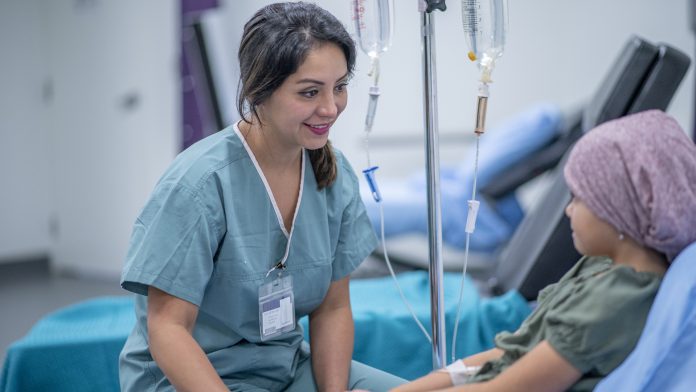
New research has found that whole genome sequencing improved the clinical care of some children with cancer in England by informing individual patient care.
The Wellcome Sanger Institute, Cambridge University Hospitals NHS Trust, Great Ormond Street Hospital, and the University of Cambridge, have come together to support efforts to provide whole genome sequencing to all children with cancer and how it can improve the management of care in real-time.
The study, published in Nature Medicine, is the first time that the impact of using whole genome sequencing in current NHS practice has been assessed.
What is whole genome sequencing?
Whole genome sequencing is a single test that provides a complete readout of the entire genetic code of the tumour and identifies every single cancer-causing mutation.
In comparison, traditional tests only look at small regions of the cancer genome. This results in multiple tests being required to understand each child’s cancer.
Professor Sam Behjati, senior author from the Wellcome Sanger Institute, Cambridge University Hospitals, and the University of Cambridge: “Whole genome sequencing provides the gold standard, most comprehensive and cutting edge view of cancer. What was once a research tool that the Sanger Institute started exploring over a decade ago, has now become a clinical test that I can offer to my patients. This is a powerful example of the genomic data revolution of healthcare that enables us to provide better, individualised care for children with cancer.”
Genome sequencing in childhood cancer patients
The team analysed routine whole genome sequencing, through the NHS Genomic Medicine Service, in two children’s cancer centres for solid cancer and leukaemia in England. They found that cancer sequencing gave new insights, improving the immediate clinical care of 7% of children, whilst also providing all the benefits of current standard tests.
Furthermore, in 29% of cases, whole genome sequencing provided additional information that helped clinicians understand the tumours of individual children and informed future management. One example of this was uncovering unexpected mutations that increase future cancer risk leading to preventative measures being taken, such as regular screening.
On the whole, the team found that whole genome sequencing provided additional, relevant data, about childhood cancer that is useful for informing practice. As a result, it can reduce the number of tests required, and now, the researchers suggest it should be provided to all children impacted by cancer.
Dr Jack Bartram, senior author from Great Ormond Street Hospital NHS Foundation Trust and the North Thames Genomic Medicine Service, said: “Childhood cancer treatment is mostly guided by genetic features of the tumour, and therefore an in-depth genetic understanding of cancer is crucial in guiding our practice. Our research shows that whole genome sequencing delivers tangible benefits above existing tests, providing better care for our patients. We hope this research really highlights why whole genome sequencing should be delivered as part of routine clinical care to all children with suspected cancer.”









